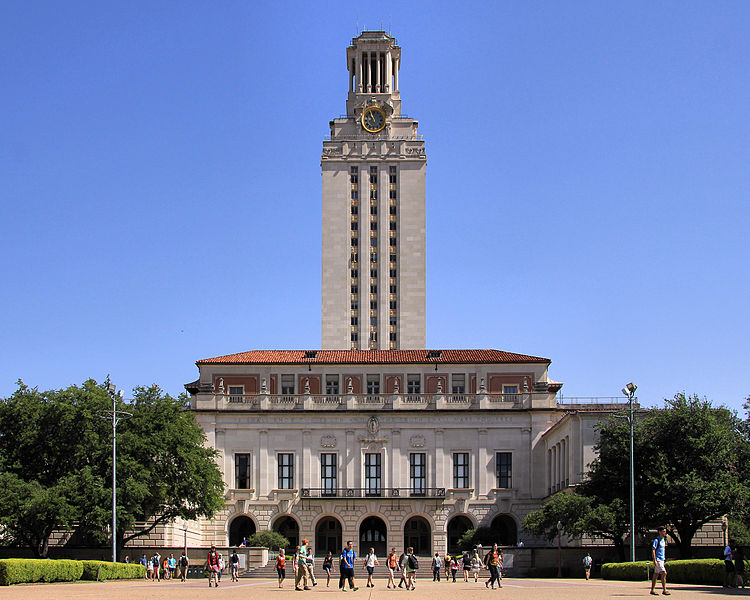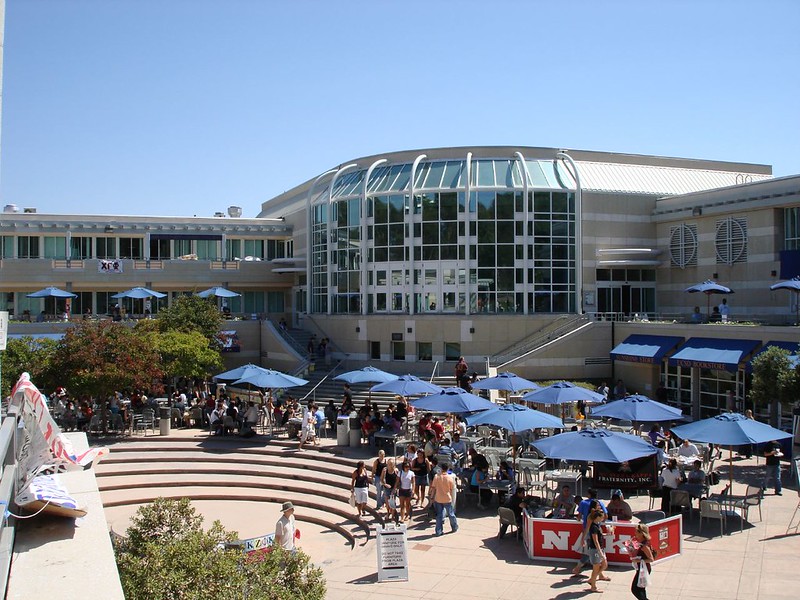
For this final post in this series on the Habits of an Incarnational Presence, we asked two of our GFM staff, Tim Wang (University of Texas – Austin) and Greg Ehlert (University of California – San Diego) to give us a brief snapshot of how they have experienced the principles of Incarnational Presence in their ministries.
Julian Reese with Teresa Hooper
University of Texas – Austin
By Timothy Wang
One the practices toward developing a ministry of Incarnational Presence is what we like to call “just showing up.” As it relates to ministry to university faculty one of the best and easiest ways to connect with them is by showing up to their departmental lectures and talks. This last year I experienced the fullness of this practice in the history department at University of Texas at Austin (UT).
A professor of Art History at UT (who was also the executive Vice President and provost of the University!) was giving a talk on her new book to the university’s Institute for Historical Studies. Immediately upon arriving, I made note of three faculty that I had previously had conversational brushes with. After the talk, I briefly connected with two of those faculty and during the conversation one of them invited us to visit and tour their departmental building. On the tour we got a chance to connect with two more faculty and were then invited to future departmental talks.
By just showing up (and being open to connecting!) in the span of 90 minutes, the Spirit opened doors for further relationship in developing an Incarnational Presence. Obviously “just showing up” won’t always be as immediately fruitful as this example highlights but if we develop this practice, over time I believe God will open an unusual and surprising number of doors with faculty on our campuses.

University of California – San Diego
By Rev. Greg Ehlert
One practice of an Incarnational Presence approach to campus ministry is the habit of regularly attending events held by the university itself. Whether the events are offered by individual departments or the university at large, there are hundreds of events each year where our presence can be used by the Holy Spirit to cultivate and establish relationships within an entire department.
After being introduced to the Incarnational Presence model by my colleague, Julian Reese, I let our GCF students know that I wanted to be informed about their department’s events, seminars and gatherings. One of our student leaders, Doug, made me aware of events in the sociology department and I started attending gatherings and lectures there. As I attended these events, I took notice of the language that they used, the people in the room, and the concerns they addressed. I came with a disposition of curiosity to learn about the values, challenges, and desired outcomes of the professors and scholars inhabiting these spaces.
On one occasion the sociology department invited their own faculty and visiting scholars to present their research on immigration, the history of passports, and migration. The event included several presentations, discussions, and dialogue about the many challenges and difficulties surrounding these issues. During a lunch provided after the event, I introduced myself to many of the presenters and asked them questions about their work, research, and goals. I was particularly struck by a professor from Arizona who had done his research with Mexican immigrants at the U.S. border with Mexico in Texas and Arizona over the course of ten years. He told me how he had worked with legislators on Capitol Hill and interviewed hundreds of families at detention centers and border crossings over the years. Towards the end of the conversation, he told me that, if he were given a “blank slate” to write immigration policies that were guaranteed to be adopted at the federal level, he wasn’t sure what he would write. It was simply that complex.
From that one event alone, I learned that faculty are driven by a passion for solving problems and are willing to go to great lengths to persevere in finding answers even if they don’t result in concrete outcomes. I learned that scholars love the pursuit of knowledge for its own sake at times and are willing to risk that their work may not always result in the changes they hope to see in the world. I learned about the importance of collaboration, mutual respect, and the diligence required to be relevant in the academy. Most importantly, I learned that there are myriad ways we can connect the good news of the Kingdom of God to the concerns being discussed in the university.
One unforeseen outcome of my interest in the sociology department was that Doug shares his experiences there with me. He often keeps me informed about what he’s learning, discussing, and what he is being challenged with. On one occasion, he came to our weekly Bible study looking sad and rather depressed. When I inquired with him about his disappointment, he told me that he had been in several hours of discussions with professors and colleagues about complex social challenges and how it never occurred to them that love could be a legitimate motivation of human behavior. He wondered whether his presence was making a difference and I was able to encourage him that, indeed, his presence was bearing witness to how God’s love can and does make a transformative difference in the world of ideas as they become aligned with the way of Jesus and the Kingdom. Our ultimate goal as campus ministers is to equip and empower the students and faculty to be an incarnational presence of the Kingdom of God wherever they are called to serve, learn, and grow.
Previous posts in this series are:
Images for Incarnational Presence
Cultivating Habits of Incarnational Presence
Cultivating Habits: The Farmer and Earning an Incarnational Voice
Incarnational Presence: Participation in the Music of the Spheres
Julian Reese serves Faculty and Graduate students at the University of Tennessee in Knoxvillle, Tn with InterVarsity’s GFM ministry. He is a graduate of Wheaton College (IL) with a B.A. in Bibilical Studies, and Gordon-Conwell Seminary (M.Div.). He is married to Melanie, who serves with him on GFM staff. The Reeses have three grown children on two continents.
The GFM ministry in Knoxville has coordinated the Veritas Forum at the University of Tennessee since 2005, partnering with academic departments in the University. They also sponsor an Apprentice Cohort in Incarnational Presence ministry.

Leave a Reply